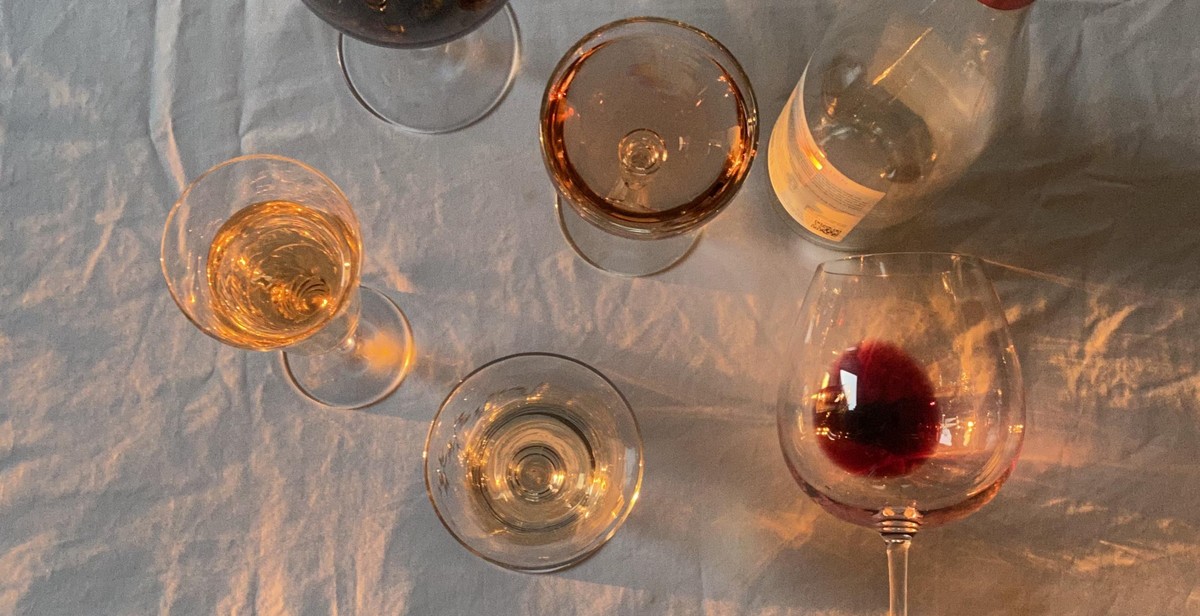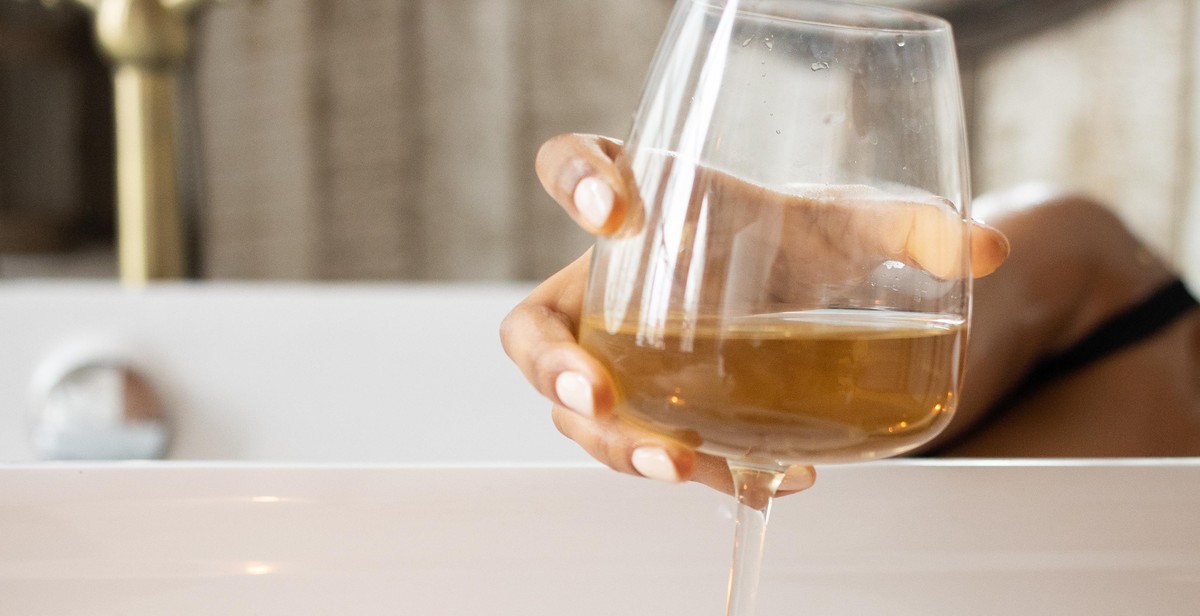How to Choose the Right Wine Glassware for Different Varieties: Enhancing Aromas and Tasting Experience
Wine is a complex drink that requires a certain level of attention to detail to fully appreciate. Drinking wine is not just about getting drunk; it’s about experiencing the flavors, aromas, and textures that each variety has to offer. One of the most important factors that can affect your wine tasting experience is the glassware you use.
Why Choosing the Right Wine Glassware Matters
Choosing the right wine glassware is crucial because it can significantly enhance or detract from the wine’s aroma, flavor, and overall tasting experience. The right glassware can help to amplify the wine’s aromas and bring out its unique characteristics, while the wrong glassware can make the wine taste flat and uninteresting.
How Wine Glass Shape Affects Tasting Experience
The shape of the wine glass can have a significant impact on the wine’s taste and aroma. For example, a glass with a narrow opening can concentrate the aromas and direct them towards your nose, while a wider opening can allow the wine to breathe and release more of its flavor and aroma. Similarly, the shape of the bowl can affect how the wine hits your palate, highlighting certain aspects of its flavor and texture.
Overall, choosing the right wine glassware is an important part of enjoying your wine to the fullest. By considering the shape and size of the glass, you can enhance the flavors, aromas, and textures of your favorite wines, making them even more enjoyable to drink.
Types of Wine Glasses
Choosing the right wine glassware is essential for enhancing the aromas and tasting experience of different wine varieties. There are several types of wine glasses, each designed to highlight the unique qualities of a particular wine. Here are the most common types of wine glasses:
Red Wine Glasses
Red wine glasses are designed with a larger bowl and wider opening than other wine glasses. The larger bowl allows the wine to breathe, releasing its flavors and aromas. The wider opening also allows for better aeration, which can soften the tannins in red wine and enhance its flavor. Red wine glasses typically have a shorter stem than other wine glasses, which makes them easier to hold and swirl.
White Wine Glasses
White wine glasses have a smaller bowl and narrower opening than red wine glasses. The smaller bowl helps to preserve the cooler temperature of white wine, while the narrower opening helps to direct the wine to the front of the mouth, where the taste buds are most sensitive. White wine glasses also typically have a longer stem than red wine glasses, which helps to keep the wine at a cooler temperature.
Sparkling Wine Glasses
Sparkling wine glasses, also known as Champagne flutes, have a tall, narrow bowl and a long stem. The narrow bowl helps to preserve the carbonation and aroma of the wine, while the long stem allows you to hold the glass without affecting the temperature of the wine. The shape of the glass also helps to showcase the bubbles in the wine, making it a visually appealing choice for celebratory occasions.
Fortified Wine Glasses
Fortified wine glasses, also known as port glasses, have a smaller bowl and narrower opening than red wine glasses. The smaller bowl helps to concentrate the aromas and flavors of the wine, while the narrower opening helps to direct the wine to the back of the mouth, where the more complex flavors can be enjoyed. Fortified wine glasses also typically have a shorter stem than other wine glasses, which makes them easier to hold and sip.
Conclusion
Choosing the right type of wine glass can greatly enhance the aromas and tasting experience of different wine varieties. By selecting the appropriate glassware for each type of wine, you can enjoy the full range of flavors and aromas that each wine has to offer.

Factors to Consider When Choosing Wine Glassware
Wine glassware is an essential component of wine tasting and drinking experience. When selecting wine glassware, you must consider several factors, including glass size and shape, rim shape and width, stem length and shape, and material. Here are some tips on how to choose the right wine glassware for different wine varieties:
Glass Size and Shape
The size and shape of the glass can significantly impact the wine’s aroma and flavor. Generally, wine glasses have a larger bowl and a narrower opening at the top to concentrate the wine’s aroma and enhance the tasting experience. For instance, white wine glasses are smaller with a U-shaped bowl to preserve the wine’s delicate aromas, while red wine glasses have a larger bowl with a wider opening to aerate the wine and release its bolder flavors.
Rim Shape and Width
The rim shape and width can also affect the wine’s taste and aroma. A thin rim allows the wine to flow smoothly onto the tongue, enhancing the wine’s flavor. Wide rims can dull the wine’s flavor and make it difficult to drink. Moreover, the rim’s shape can affect the wine’s flow, and a flared rim can help release the wine’s aroma.
Stem Length and Shape
The stem’s length and shape can impact the wine’s temperature and the drinker’s experience. A longer stem keeps the wine away from the drinker’s hand, preventing the wine from warming up. The shape of the stem can also affect the wine’s taste, and a tulip-shaped stem can help concentrate the wine’s aroma.
Material
The material of the wine glassware can also affect the wine’s taste and aroma. Glass is the most common material used in wine glassware as it does not affect the wine’s flavor. However, crystal glassware is more delicate and can enhance the wine’s aroma and flavor. Additionally, plastic wine glassware is suitable for outdoor events but can affect the wine’s taste.
Conclusion
Choosing the right wine glassware can enhance your wine drinking experience. By considering the glass size and shape, rim shape and width, stem length and shape, and material, you can select the perfect wine glassware that complements your wine’s unique qualities.

Choosing Wine Glasses for Specific Varietals
Choosing the right wine glassware can enhance the aromas and tasting experience of your favorite wine varietals. Here’s a guide to selecting the best wine glasses for different varieties:
Cabernet Sauvignon and Bordeaux
Cabernet Sauvignon and Bordeaux are full-bodied red wines with complex aromas and flavors. The ideal wine glass for these varietals is a tall, large-bowled glass with a wide opening. This type of glass allows the wine to breathe, releasing its full aroma and flavor profile.
Pinot Noir
Pinot Noir is a delicate red wine with a light body and subtle aromas. The best wine glass for Pinot Noir is a large-bowled glass with a tapered opening. This type of glass concentrates the wine’s aroma, allowing you to fully appreciate its delicate and nuanced flavors.
Chardonnay and Other Full-Bodied Whites
Chardonnay and other full-bodied white wines have rich, buttery flavors and aromas. The best wine glass for these varietals is a wide-bowled glass with a tapered opening. This type of glass allows the wine to breathe, releasing its full aroma and flavor profile.
Sauvignon Blanc and Other Light-Bodied Whites
Sauvignon Blanc and other light-bodied white wines have crisp, refreshing flavors and aromas. The ideal wine glass for these varietals is a narrow, tall glass with a small opening. This type of glass concentrates the wine’s aroma, allowing you to fully appreciate its delicate and nuanced flavors.
Champagne and Other Sparkling Wines
Champagne and other sparkling wines have effervescent bubbles and delicate flavors. The best wine glass for these varietals is a tall, narrow glass with a fluted shape. The narrow opening helps to preserve the bubbles and the fluted shape enhances the wine’s aroma and flavor profile.
Port and Other Fortified Wines
Port and other fortified wines have rich, complex flavors and aromas. The ideal wine glass for these varietals is a small, narrow glass with a tapered opening. This type of glass concentrates the wine’s aroma, allowing you to fully appreciate its rich and nuanced flavors.
| Wine Variety | Ideal Glassware |
|---|---|
| Cabernet Sauvignon and Bordeaux | Tall, large-bowled glass with a wide opening |
| Pinot Noir | Large-bowled glass with a tapered opening |
| Chardonnay and other full-bodied whites | Wide-bowled glass with a tapered opening |
| Sauvignon Blanc and other light-bodied whites | Narrow, tall glass with a small opening |
| Champagne and other sparkling wines | Tall, narrow glass with a fluted shape |
| Port and other fortified wines | Small, narrow glass with a tapered opening |
Conclusion
Choosing the right wine glassware is crucial in enhancing the aroma and tasting experience of different wine varieties. Investing in quality wine glasses is worth it, as it can elevate your drinking experience and allow you to fully appreciate the complexity of the wine.
Factors to Consider
When choosing wine glassware, consider the shape, size, and material of the glass. Each of these factors can affect how the wine is perceived and tasted. Additionally, consider the type of wine you will be drinking, as different varieties require different glassware to fully appreciate their unique characteristics.
Benefits of Quality Wine Glassware
Investing in quality wine glassware can provide a range of benefits, including:
- Enhanced aroma and taste perception
- Improved aesthetics and presentation
- Increased durability and longevity
Final Thoughts
Choosing the right wine glassware may seem like a small detail, but it can make a big difference in your overall wine drinking experience. By considering the factors mentioned above and investing in quality glassware, you can fully appreciate the complexity and nuances of your favorite wines.
| Shape of Glass | Wine Variety |
|---|---|
| Tulip-shaped | Red Burgundy, Pinot Noir |
| Bordeaux-shaped | Red Bordeaux, Cabernet Sauvignon, Merlot |
| Flute-shaped | Champagne, Sparkling Wine |
| White Wine Glass | White wine, Rosé wine |
